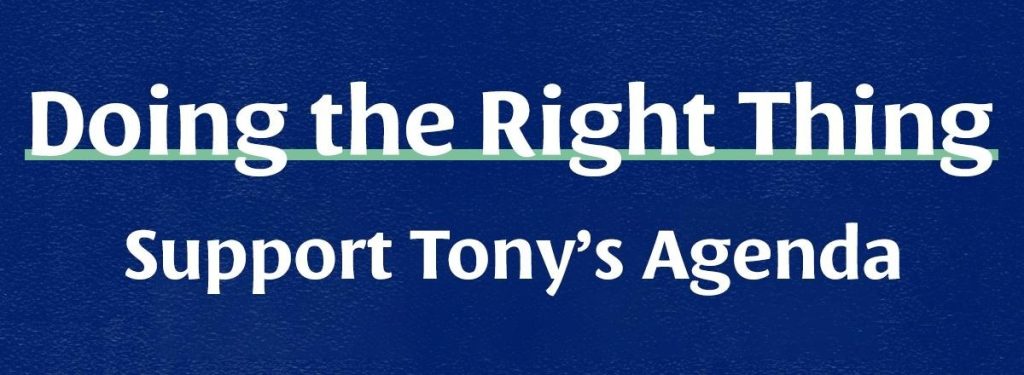
Gov. Evers believes families across Wisconsin deserve relief from rising costs and is taking action. While Wisconsinites see higher prices at the pump and grocery store checkout, the governor is committed to doing the right thing and providing relief where it’s needed most.
The governor’s plan to address rising costs builds on his work during his first term to put more money in the pockets of working families. By bringing Democrats and Republicans together, Gov. Evers signed historic tax relief, delivering a 15% income tax cut to most Wisconsinites. He also directed changes to Wisconsin’s tax withholding tables, reducing the amount of money deducted from paychecks and putting more money in the pockets of working families. He also signed one of the largest small business tax cuts in state history and has invested over a billion dollars to help small businesses and other affected industries recover and succeed.
Gov. Evers will do the right thing and provide additional relief from rising costs by:
- Gas Price Relief: Families need relief from record gas prices. That’s why he supports a temporary state gas tax holiday, with a clear end date and funding to backfill lost revenue for ongoing road and bridge repairs across the state. Gov. Evers also continues to support a repeal of the state’s Mandatory Markup law, which forces local gas stations to raise their prices by nearly 30 cents a gallon. This common sense measure has been supported by Republicans and Democrats and is long overdue to provide relief at the pump.
- Prescription Drug Price Relief: The rising cost of prescription drugs are a burden on too many Wisconsin families. During his first term, Gov. Evers worked to expand SeniorCare to fully cover pharmacy vaccinations. In his second term, Gov. Evers will build on the reforms he’s already implemented and continue to work to cap the costs of prescription drugs and increase transparency in drug pricing across the state. Gov. Evers also supports capping insulin copays at $35.
- Continuing to Support SeniorCare: In his first term, Gov. Evers secured an extension of Wisconsin’s SeniorCare program and expanded it to fully cover pharmacy vaccinations. He’ll continue to support this program and ensure Wisconsin seniors are able to access low-cost prescription drugs.
- Pushing for Federal Action on Gas Prices: Gov. Evers will continue to push for relief from the federal government, including a federal gas tax holiday. Additionally, Gov. Evers has requested a temporary waiver from EPA requirements that affect southeast Wisconsin, which would provide lower gas prices to that region. Gov. Evers also joined a bipartisan group of midwest governors to secure a nationwide ethanol waiver from the EPA in May.
- Child, Dependent Care Tax, and Caregiver Credit: Caregivers feel the impact of rising costs even more, that’s why Gov. Evers is committed to providing relief. The governor supports an expansion of the Child and Dependent Care Tax Credit, which will provide nearly $30 million in tax relief to more than 100,000 Wisconsinites. He will also continue to fight for a new tax credit for family caregivers, providing additional assistance to cover expenses incurred by those taking care of loved ones.
- 10% Income Tax Cut for Working Families: Gov. Evers will use part of the state’s historic $5.4 billion surplus to continue directing income tax relief to working families who need it most and build upon the historic income tax relief in the governor’s first term. After cutting income taxes for most Wisconsinites by 15 percent in his first term, Gov. Evers has a plan to deliver an additional 10 percent cut to those making less than $100,000 per year, or married couples who make less than $150,000.
- Homestead Tax Credit: Low-income seniors on fixed incomes deserve relief from rising costs. The governor’s plan restores the state’s Homestead Tax Credit by increasing the income limit and indexing the program to inflation.
- Veteran and Surviving Spouse Property Tax Credit: Gov. Evers’ plan to tackle rising costs also includes expanded eligibility for the Veterans and Surviving Spouses Property Tax Credit, providing approximately $16 million in relief to veterans with disabilities and their families.

